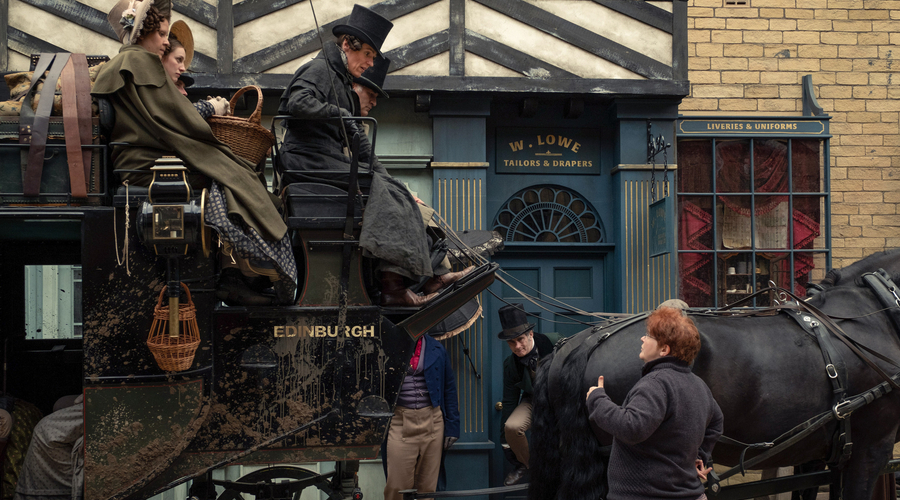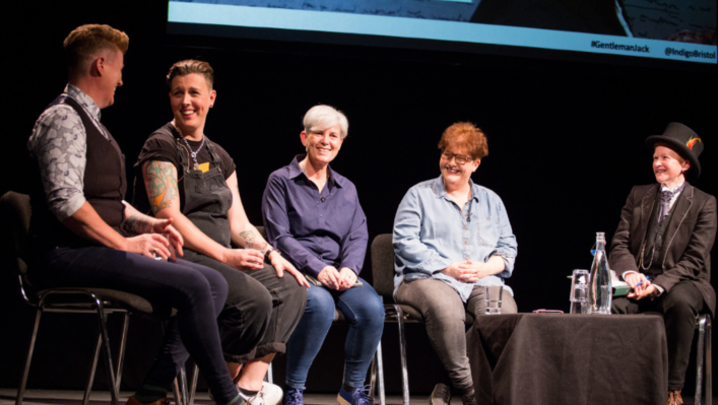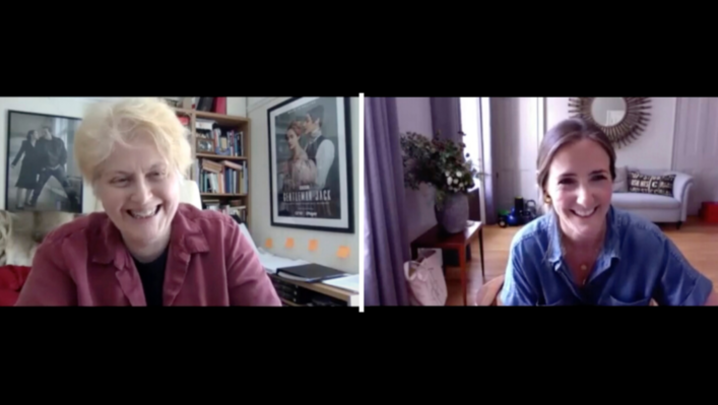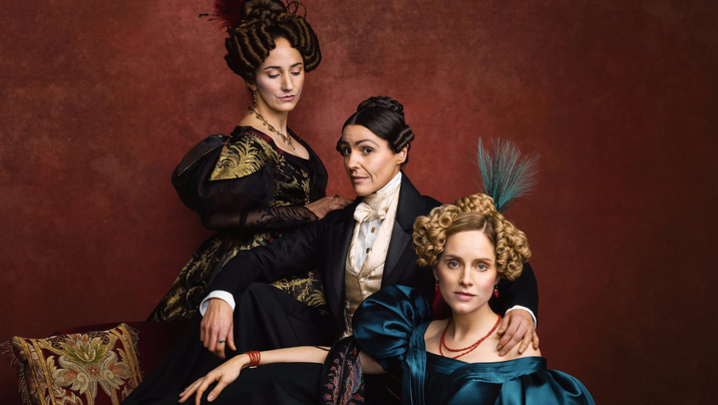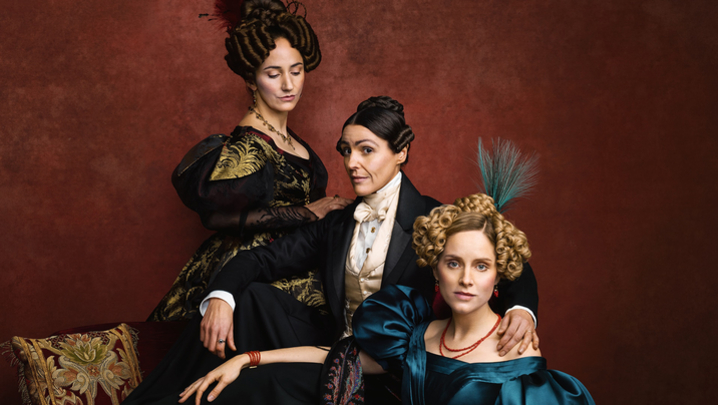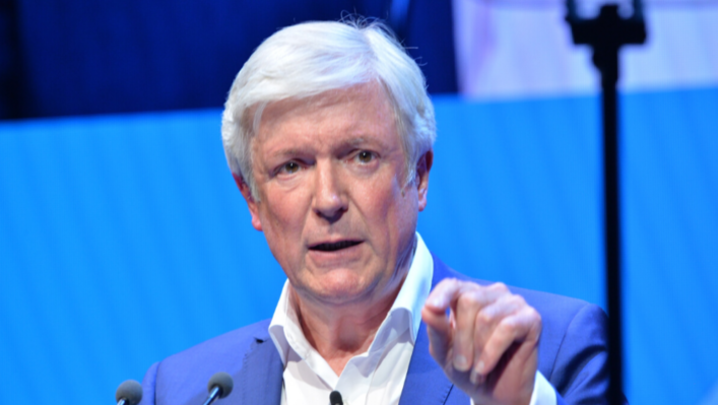Sally Wainwright persuades Caroline Frost that Gentleman Jack is a zeitgeist heroine
Some 20 years in the making, Sally’s Wainwright’s new television drama, Gentleman Jack, was originally rejected by every broadcaster she took it to. The story of an openly gay woman who farmed in 19th-century rural Yorkshire was considered a non-starter by TV networks. Starting this month, the topic is getting eight hours of BBC One Sunday-night primetime.
It’s common for writers to describe their latest work as a “passion project” – often industry-accepted shorthand for what they hope is infectious enthusiasm for their new offering.
But in the case of Wainwright and Gentleman Jack, it doesn’t really do justice to her efforts to bring the extraordinary true-life tale of Anne Lister to the screen.
For a start, Lister’s diary, on which Wainwright has based her eight hours of drama, is a weighty tome, running to 4 million words. It covers every aspect of her singular life in the early 19th century as a traveller, mountaineer, diarist and female landowner of the imposing Shibden Hall in Yorkshire.
A fair part of it is even written in code, where the subject matter runs into matters of the heart and mattress. It is spread over 27 volumes, 300 pages apiece, and now sits under Unesco-protected vigilance in the Halifax Library. Intriguingly, it’s only been in the public domain since the late 1980s, when the first pages were published.
"She’s my biggest heroine, and, for me to bring it to screen, I feel very privileged"
“I’ve been working on it for 20 years, and I feel like a novice,” Wainwright says. “Very few people have even read it in full. Maxine Peake’s earlier BBC drama (a single drama in 2010) sort of skirted through, but you can’t really do it justice in 90 minutes. It’s vast, labyrinthine and inaccessible. It’s actually quite an emotional experience just seeing the real pages.”
Add to this the fact that Wainwright used to run along the corridors of Shibden Hall on regular visits as a child, and you can begin to guess at the strength of the connection she feels to the ancient house and its headstrong inhabitant.
“I do feel very passionately,” she laughs. “She’s my biggest heroine, and, for me to bring it to screen, I feel very privileged. I just hope that people get to like her.”
What’s not to like? From the first episode, actually filmed in Shibden, we meet Lister, played by Suranne Jones with a wonderful glint in her eye. When she’s not winding up her sister, aunt and father – jealous, doting and bewildered, respectively – she’s climbing hills, riding horses or inspecting the work of her tenants.
And that’s before you get to all the women – because, in case she wasn’t already provocative enough in her lifestyle choices, Lister was also an out-and-proud lesbian, long before Queen Victoria doubted their existence.
Lister was determined to find herself some proper loving, which she did in the arms of her neighbour Anne Walker. Clearly, this is a story for our time, if not Lister’s.
“I initially pitched it in the early 2000s,” remembers Wainwright. “Nobody was interested. I was quite young, and 20 years ago we weren’t having the same conversations we are now about gender.
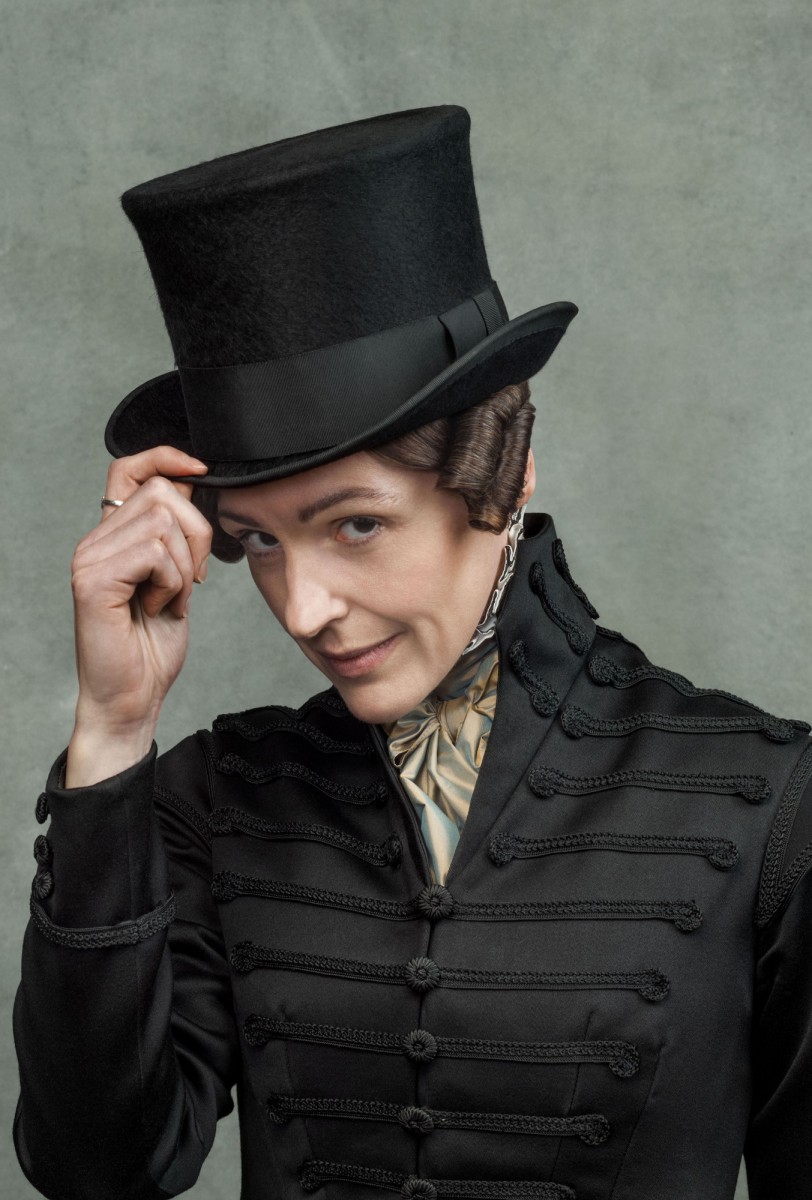
(Credit: BBC/Lookout Point/HBO/Jay Brooks)
“We can be so articulate and open with our children now, they’re not growing up in a world where you have to be hidden away if you’re not dead straight. If I’d got this made 20 years ago, it would have been a niche drama, tucked away in the schedules somewhere. I wouldn’t have got to grips with the diary, I wouldn’t have got Suranne Jones, so I can’t regret what’s happened. We couldn’t do her more justice than we’re doing now.”
Executive producer Phil Collinson is quite clear that only Sally Wainwright could have brought off this mighty project. “She’s peeled back Anne’s character, got underneath, and mined the strength in the middle of her character. Plus she’s made it very funny, which period drama often forgets to do.
“You can laugh out loud at this brilliant family. You have actors Gemma Whelan, Gemma Jones and Timothy West in these extraordinary scenes at the dinner table, where the family gets to be really dysfunctional. There are universal things in this story, things that audiences can completely
relate to.”
For Gentleman Jack, the BBC partnered with HBO; the show has already thrilled critics in the US. Wainwright said both partners were equally willing to trust her and support her editorial decisions for a prime-time drama built around a lesbian relationship.
“It was my choice, not foisted on me, to make the story family-orientated,” says Wainwright, who also directed the drama. “I like entertaining people, I don’t want to preach, so that was my guiding light, and there’s nothing more entertaining than a dysfunctional family.
“I didn’t want gratuitous sex scenes. Anne was a great lesbian lover and we should celebrate that. She said herself, ‘I know how to please a lady, and I did,’ so I wanted to reflect that, but you can get that across without being gratuitous at all. If a female director can’t do that, who can?
“There’s one sex scene that’s quite fruity, but it lasts about three seconds. All the others are incredibly delicately constructed and shot. The tabloids have grabbed some screen shots and gone on about the sex, which is a bit sickening after we tried so hard to do it delicately, but what can you do?”
Collinson calls it “a 360° look at a complicated, difficult relationship”, adding: “I can’t think of another show in the UK that puts a gay couple right in the middle of it, and celebrates that relationship, at 9:00pm on a Sunday.”
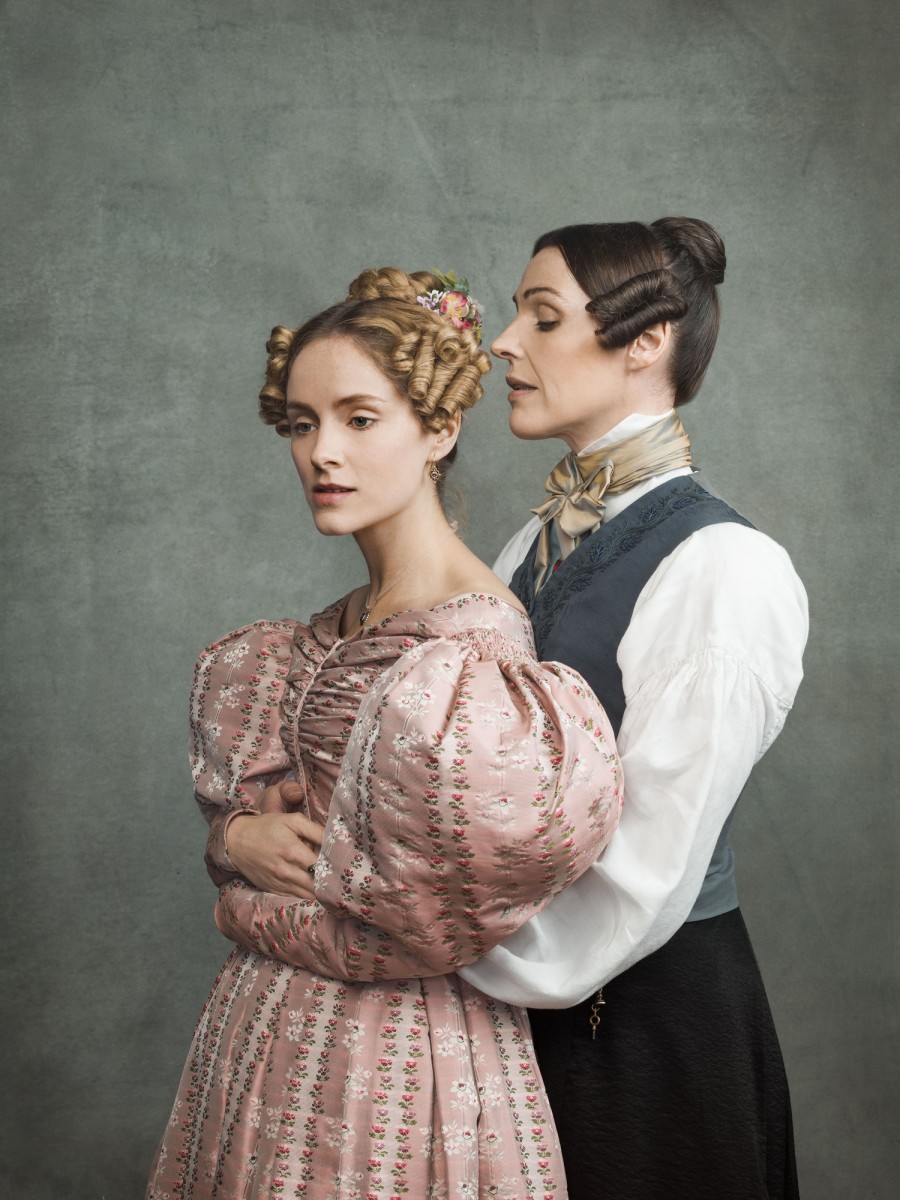
and Anne Lister (Suranne Jones)
(Credit: BBC/Lookout Point/HBO/Jay Brooks)
Is it that commissioners are becoming braver, or has the world changed? “A bit of both,” he decides. “It’s just less scandalous to tell a story like this. We’ve just had The Favourite becoming a big-screen hit. There are still fights to be had, but it’s definitely more on the agenda, plus women are being written for better than ever before.
“There are some great male characters in this, but at its core it’s strong women. And that’s quite a new thing, bonkers as it sounds. But it makes better viewing for everybody, I think.”
After a string of awards and hits to her name, Wainwright has inevitably been courted by some deep-pocketed producers on the other side of the Atlantic, particularly after Happy Valley won a whole new audience on Netflix. But it seems we won’t be losing her any time soon.
“I’ve always wanted to write dramas that are about my world, which is why I’ve gravitated to West Yorkshire and Halifax. Telly is becoming more global, but you still have to set your show somewhere specific, and I set my shows where I know what I’m talking about, where I speak the same language that people speak.”
A few months ago, Wainwright referred in a Radio Times interview to the long battle she felt she had to fight in order to be taken seriously as a creative woman in an industry she believes simply “trusts men more”.
Now, with the likes of Fleabag and Killing Eve joining her own huge catalogue of hits, she acknowledges things are improving. However, she reminds us: “It’s interesting, we mention those shows, but they’re just individual names. It’s an ongoing process.
“You still just see so many more men’s names in the credits, or, if you trawl through Netflix on the thumbnails, you see so many more male faces. It’s like turning the tanker around. If we let our guard down for a second, it will stop.”

